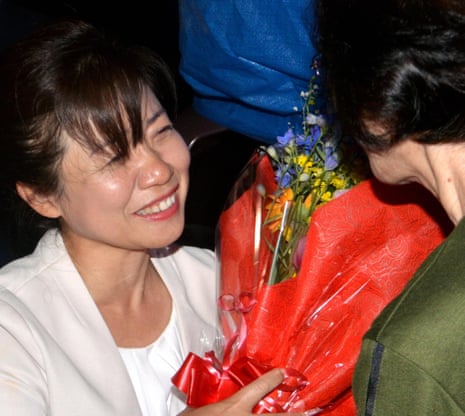Misuzu Ikeda has struck a rare blow for Japanese women in politics by becoming the first female candidate to be elected to the local assembly in the southern city of Tarumizu.
Ikeda hugged supporters on Sunday night when she finished third out of 17 candidates for the 14-seat assembly in Tarumizu, which is officially recognised as a city despite its relatively small population of 15,000.
Noting that she was the first assemblywoman in the city’s 61-year history, the former tax office employee promised to work towards a society “where residents feel cared about”, according to the Asahi Shimbun newspaper.
本当の闘いはここから始まる。全国から多くの応援の声を池田みすず議員に届け同氏の議員活動に支援を寄せなければ垂水市は更に衰退の一途を辿ることになるだろう。ー 女性議員、ついに誕生 垂水市議選「見えない壁」越えた:朝日新聞デジタル https://t.co/qdqW1C84u3 #2019統一地方選挙 pic.twitter.com/isQyUdh4dA
— Kouhei Matsuda (@km_jetta) April 22, 2019
The election also marked the first time a female candidate had stood for a Tarumizu seat for 20 years, and the first time two women had run for the legislature. The other candidate, Rieko Takahashi, did not win a seat.
Six women were elected city mayors in Sunday’s nationwide elections – breaking the previous record of four, set in 2015. The number of women elected to city assemblies reached 1,239 – another high – according to the Mainichi Shimbun.
Japan, though, still performs poorly in international comparisons of female representation in politics.
Before Sunday’s elections, four out of every five local assembly members nationwide were men, with almost 20% of assemblies having no female councillors at all. That prompted parliament to pass non-binding legislation last year calling on parties to field equal numbers of male and female candidates.
Despite the move, candidate lists, local assemblies and the two houses of parliament are still dominated by men.
Many women who run for office encounter resistance from male-dominated party organisations, while a quarter of first-term assemblywomen say they have been sexually harassed by fellow assembly members and constituents.
1958年の市制施行以来、女性議員ゼロが続いてきた鹿児島県垂水市議選で初めて女性候補の池田みすず氏(45)が当選しました。堂々の得票3位で議席を得た池田氏は「女性候補として苦しい戦いだった。女性の視点で子供を産み育てやすい環境づくりを目指す」と声を震わせました。 https://t.co/Yi1aisVkvl pic.twitter.com/R23V55LHxi
— 小川一 (@pinpinkiri) April 21, 2019
“What’s behind all this is that Japan is still very much a male-dominated society and has not got used to women who are trying to take leadership roles and speak their minds,” Masae Ido, a former MP, told the Asahi.
Only 10% of MPs in Japan’s lower house are women, according to a survey of female representation in national parliaments by the Inter-Parliamentary Union, with Japan ranking 165th among 193 countries.
Just over 32% of Britain’s House of Commons are women. Only 23.7% of the US Congress are women.
Despite vowing to establish a society in which “women can shine”, the prime minister, Shinzō Abe, appointed just one woman – the regional revitalisation minister Satsuki Katayama – to his cabinet in a reshuffle last October.
